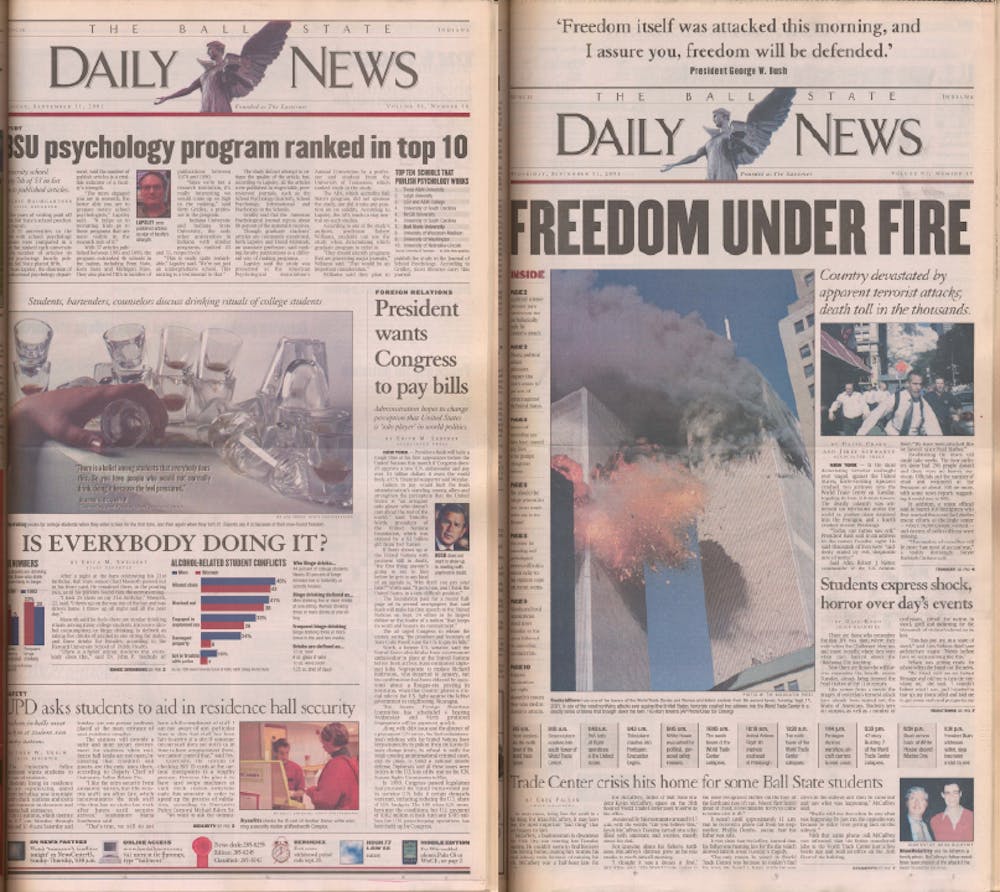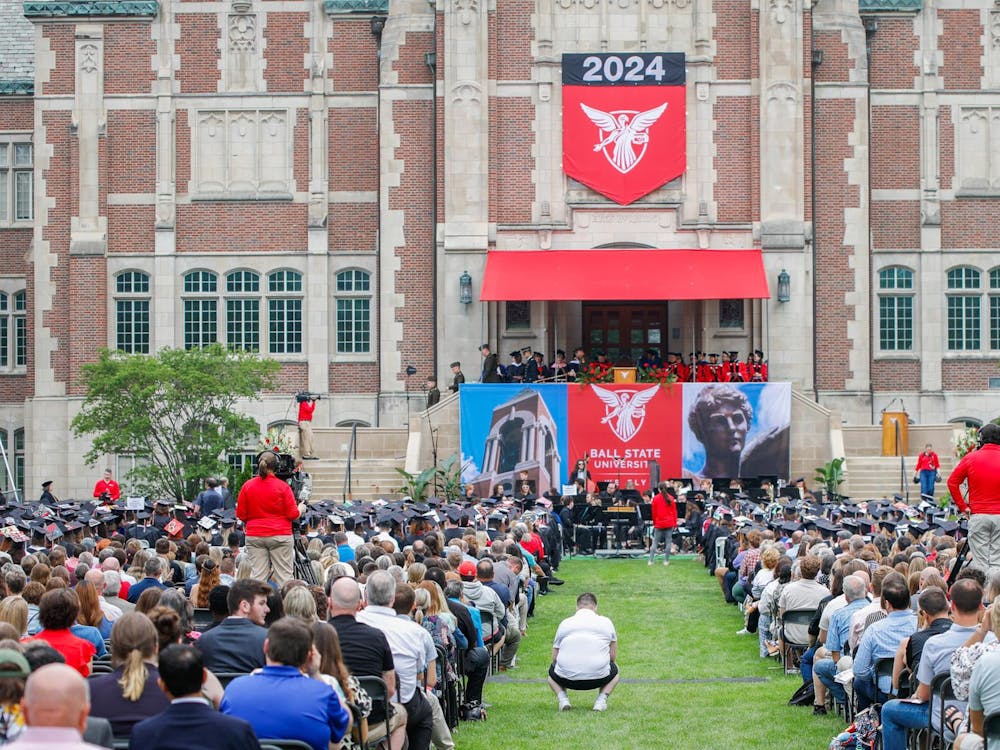Sixteen years ago, the front page headline on most papers lacked the biggest news story to occur that day. Sept. 11, 2001 is a day in history that many recall starting off as a normal day. The edition of the Ball State Daily News from that day is a reflection of the normalcy of that Tuesday morning.
“BSU psychology ranked in top 10” faded into the back of students' minds as two planes crashed into the World Trade Center.
“So, September 11, 2001 started out as a normal as a day for me. I was actually a senior in college that year. I came to my campus and got ready to start the day with one of the student organizations that I was a member of and worked for,” said Katherine Denker, an associate professor of communication studies. “I had my desk set up, was just doing basic day-to-day stuff when one of my best friends came in and he said, someone, something along the lines that, somebody — a plane hit a tower in New York. And I was like, ‘What?’ I was like, that’s a weird accident. And I was like, that’s so strange and we kinda went on with it.”
For Denker, the day continued in a state of shock and confusion.
“I don’t remember if some other people came in or what, but the conversation started shifting that this wasn’t like a normal just plane, flight accident. It was big. We actually had a TV lounge in our student center, which is where my organization’s office was located. So, we went over to the TV lounge and I remember there being more students in there than chairs, and we were just all sitting on the floor, watching one of those big screen TVs from the early 2000s, like big, thick TVs, and we’re just watching the fire and smoke pour out of the building. And I remember just being so dumbfounded and I’m not even sure if I saw the second plane hit or not. I was just in such a state of shock. Somewhere after the second plane hit, there were spontaneous prayer groups that started around campus. Students were praying and we weren’t sure what to do. Because this is a commuter campus, I was at University of Nebraska Omaha. We just kind of prayed together, some of us and some of us just sat around, and then there was just kids crying. And I remember in the afternoon just going to some of my classes because I wasn’t sure what else to do. It was so interesting. One of my professors did a really good job spending a few moments trying to talk to us and process with us what was happening and our fear and the uncertainty that we were experiencing. And I went to another class and it was really weird because the instructor tried to continue on with the day and I think she was so in shock herself she wasn’t sure what to do. I remember driving home and seeing long lines at the gas station, which just seemed odd. I don’t know why people were stopping at the gas station, but they were. And stopping at a friend’s apartment and just kind of sitting there for a while, not really wanting to go home.”
The days following, she added, were almost robotic.
“I remember the mood and the tone of all interactions were just dampened and darkened. Going to work, going to school, it was very kind of like robotic almost,” Denker said.
For Cathy Day, the acting chairperson of the English department, the attack hit closer to home.
“On September 11th, 2001, I was living in Trenton, New Jersey, which is about 60 miles from Manhattan. The university where I was teaching, the College of New Jersey, had two students who lost their parents that day, and I’d say that almost all of my students, especially those from north Jersey, knew someone who died in the Twin Towers,” Day said in an email. “The after shocks of that day lasted for years — and what I mean by that is that something happened every single day that reminded me of 9/11.”
Similar to Denker, Day was also in a classroom, but she, however, was the professor trying to help students cope.
“I was teaching a creative writing class that semester in which we created a fictional New Jersey town. We were going to write interrelated stories set in that town, the goal being that my students would explore what it meant to be from Jersey,” Day said. “But how do write about being from Jersey in the wake of 9/11? Half the students absolutely didn’t want to write about 9/11, and the other half absolutely did. So we decided to create a fictional tragedy for our town. The students who didn’t want to write about 9/11 set their stories before the tragedy, and the students who wanted to process what they were feeling about 9/11 set their stories during and after the tragedy. It was the most challenging semester of my teaching career.”
The Ball State community remembers 9/11 by tolling the bell every 10 seconds between 9 and 9:10 a.m. in honor of those who lost their lives.





